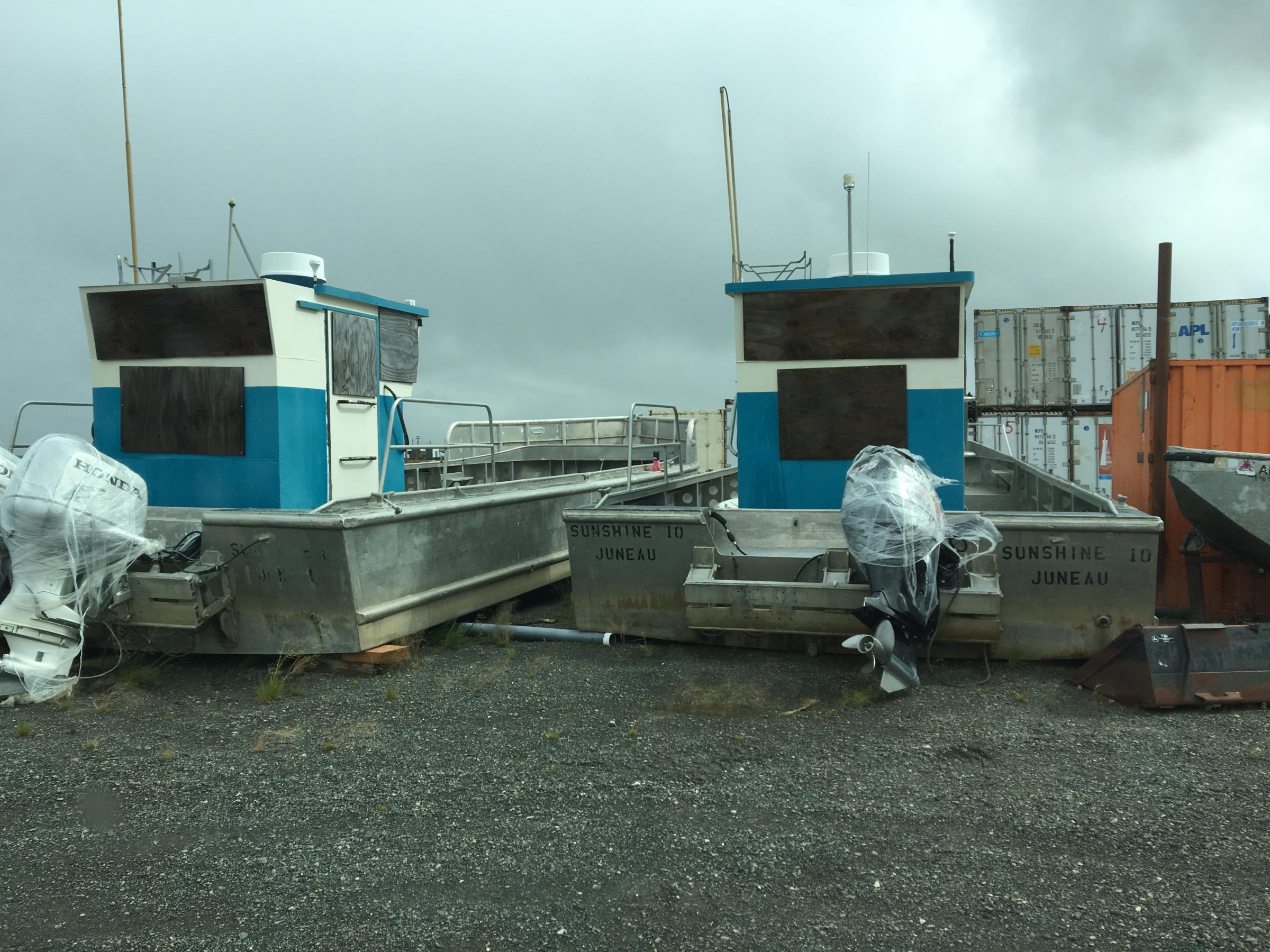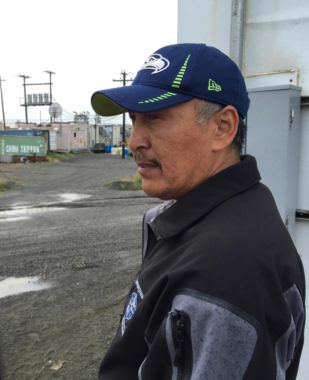
Several weeks ago, the financing fell through on a plan to bring the “Akutan,” a floating fish processing vessel, to Kuskokwim Bay.
Fishermen in the coastal community of Quinhagak have nowhere to sell their catch for the second summer in a row.
Many in the village are now struggling to make ends meet.
Timothy “Johnny Boy” Matthews doesn’t remember when he started fishing commercially.
He must have been 5, he said, or maybe 6.
On most summer evenings, Matthews’ father would load him and his brother into a wooden boat that he built himself and sail into Kuskokwim Bay.
They would net salmon for the next 12 hours, working through the short, sunny night.
Matthews’ job on board was to count the reds, kings and chums that his father caught, although as the night wore on he would fall asleep in the boat’s cabin.
When his father sold the fish, he made sure to share the profits with his sons.
“Every time he’d pay me he’d tell my mom, ‘here’s the money he got for sleeping,’” Matthews said with a laugh.
Matthews has a family of his own now.
He bought his own limited entry permit a decade ago and spent his summers selling silvers to a newly opened processing plant in Platinum.
It’s owned by Coastal Villages Region Fund, a corporation that is supposed to use its Bering Sea fishing quota to support economic development in the area.
Matthews remembers when fishermen could make about $6,000 a year selling to Platinum. Some in Quinhagak said that in good years expert fishermen could earn more than $20,000 a season.
Last year, the Coastal Villages corporation decided not to re-open its plant, saying that it was losing money.
There was nowhere to sell fish and limited prospects for any sort of summer work.
Matthews works as the maintenance man at the local Head Start during the school year, but in the summers he doesn’t have any money coming in.
His phone’s been cut and he said that he’s afraid that his water and sewer will be cut soon too.
The lack of money also means that Matthews has been unable to buy fuel for subsistence activities.
“It’s really, really hard on us,” Matthews said.
After two years without a buyer, a lot of the fishermen in Quinhagak tell similar stories.
Jimmy Anniver is an elder here, who worked as a commercial fisherman for more than 60 years – first in Bristol Bay, then in the Kuskokwim Bay – right up until the Platinum plant closed.
“High prices in the stores fill up those credit cards to $10,000 or more, or something like that,” Anaver said. “It’s hard to live here in Alaska.”
Last year a fish broker tried to buy in Quinhagak, but the Coastal Villages corporation refused to lease him equipment.
And now a second plan has fallen through.

“We had really high hopes,” Warren Jones, the CEO of local Native village corporation Qanirtuuq Inc, said. “All the fishermen were getting excited, and then everybody was like, ‘oh no – not again.’”
Before the Platinum plant opened, Jones was the operations manager of a processing facility right in Quinhagak.
It’s now sunken and rusted; a door clanged in the wind as we toured the facility.
Jones said that he tried to get CVRF to give or sell Quinhagak some of the plant’s unused buildings – there’s a housing shortage here – but the company declined.
The buildings are still empty, and rotting away.
As a leader in the local Native corporation, Jones said that he’s doing what he can for local fishermen by hiring them part time.
“Two weeks on, two weeks off,” Jones said. “That way the other guy gets paid too. People are suffering, and winter’s coming. And the corporation here is doing as much as we can. We’re extending their credits, people are running out of fuel. And we can’t let nobody freeze to death, so sometimes we let them charge more. These are my people; we have to help them.”
Jones said that at this point, he keeps several gallons of heating fuel on hand at his home.
He never knows when someone might knock on his door at 2 a.m. in the winter, asking for heat.
